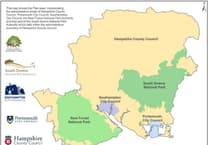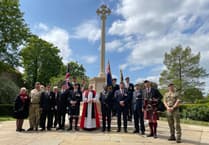Patients saw hospital appointments and planned operations rescheduled this week in anticipation of the biggest strike action in the history of the NHS starting on Tuesday.
The four-day strike by junior doctors, from 6.56am on Tuesday to 6.59am on Saturday, has forced NHS hospital trusts across Surrey and Hampshire to cut back on routine care so front-line teams can prioritise critical services and care for seriously-ill patients.
Patients are being asked to still use 999 and A&E if they need urgent medical care, especially in emergency and life-threatening cases – but in other cases to “use services wisely” during industrial action.
This includes using 111 online as the first port of call for urgent health advice when it’s not a medical emergency – or calling 111 if people do not have access to the internet.
The NHS will contact people directly if appointments need to be rescheduled because of strike action, otherwise patients should attend appointments as usual.
The strike action is part of a wider campaign of industrial action planned by junior doctors who are members of the British Medical Association (BMA) and the Hospital Consultants and Specialists Association.
They are demanding a 35 per cent pay rise to “restore” 15 years of below-inflation wage rises and better patient safety. But the government says there will be no pay talks with the BMA unless it abandons its 35 per cent starting position.
A previous three-day junior doctors’ strike in March saw approximately 28,000 NHS staff walk out and 175,000 hospital appointments rescheduled nationally.
This week’s planned action is expected to have a much greater impact because of its longer duration following the Easter bank holiday weekend.
Junior doctors make up around half of all doctors in the NHS. They are qualified doctors who have anywhere up to eight years’ experience working as a hospital doctor, depending on their specialty, or up to three years’ experience in general practice.
Surrey Heartlands Health and Care Partnership – which brings together NHS organisations and wider partners across Surrey – says it “fully supports” striking staff.
Dr Charlotte Canniff, joint chief medical officer for Surrey Heartlands Health and Care Partnership, said: “Junior doctors make a significant contribution to NHS services and in ensuring patient safety, so while we are working with our hospitals and wider partners to minimise the impact, it’s recognised this industrial action is set to be the biggest strike in the NHS’ history so we will see some disruption to local services.
“As a health and care system, we will prioritise our resources to protect emergency treatment, critical care, neonatal care, trauma services and urgent cancer care – so we can treat those patients who are critically ill and urgently need our help.”
Dr Lara Alloway, chief medical officer at Hampshire Hospitals NHS Foundation Trust, which manages hospitals in Winchester, Basingstoke and Andover, said: “Our priority is delivering the best possible patient care, ensuring our services run smoothly and safely.
“We know from previous industrial action that disruption to services is unavoidable – some planned care has been postponed and we are working hard to ensure we can provide safe urgent and emergency care. This is a particularly challenging time, as our teams have also worked through a busy bank holiday period.
“We are urging people to support their local hospitals by keeping emergency departments free for those who need our care the most. Do not put off seeking urgent care in an emergency, however – please only attend our emergency departments if it is an urgent and/or life-threatening situation.
“Patients who have hospital appointments during this period should still attend as planned unless they have been contacted directly.”





Comments
This article has no comments yet. Be the first to leave a comment.